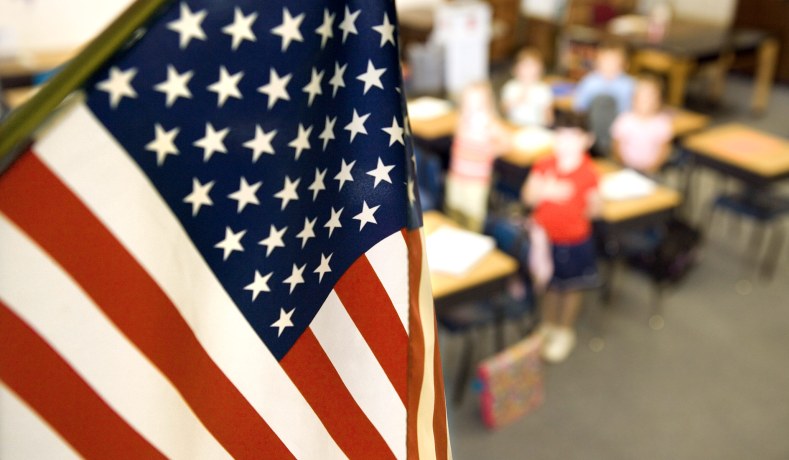
Decades of neglected civics education have resulted in widespread ignorance of America’s history and founding principles.
Margaret Thatcher once said, “European nations were made by history. The United States was made by philosophy. Unique among all nations, the United States knows precisely when and exactly why it was founded.”
Today, that may be changing. Survey after survey shows that Americans have a dismally poor understanding of the founding principles underpinning our nation.
Only one in four Americans can name all three branches of government. Seventy percent don’t know that the Constitution is the supreme law of the land.
It gets worse. According to a jaw-dropping survey recently commissioned by the Conference on Jewish Material Claims Against Germany (Claims Conference), nearly two-thirds of young adults don’t know that 6 million Jews were killed in the Holocaust. Nearly a quarter said they believed that the Holocaust was a myth, or it had been exaggerated, or they weren’t sure.
What’s more, the National Assessment of Educational Progress, which regularly issues national report cards on such topics as civics, geography, and U.S. history, found that three-quarters of eighth-graders were unable to demonstrate a proficient understanding of democratic citizenship, government, or American constitutional democracy.
For elected officials, education leaders, parents, and concerned citizens everywhere, these statistics should be a call to action. Our democracy depends on an engaged and informed citizenry. We need a swift intervention — which begins with the family and is solidified in the classroom.
Justice Sandra Day O’Connor, herself a living civics lesson, said, “Knowledge of our system of governance and our rights and responsibilities as citizens is not passed along through the gene pool. Each generation of Americans must be taught these basics.”











